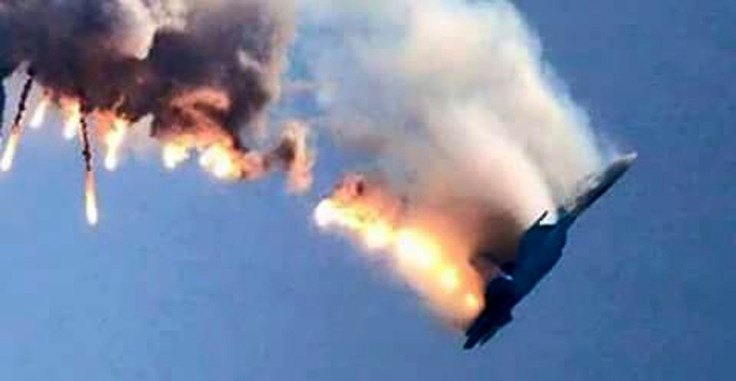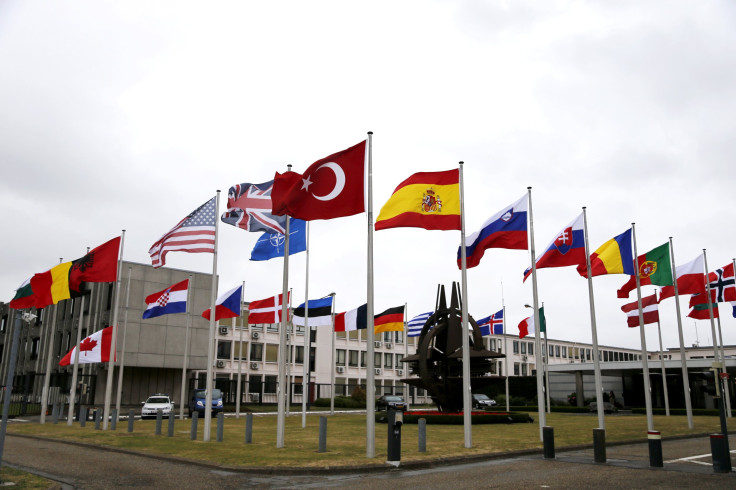Despite NATO Warnings, Russia Has A History Of Violating Airspace In Turkey, Baltics

As the North Atlantic Treaty Organization held an extraordinary meeting Tuesday to discuss Turkey’s shooting down of a Russian Su-24 fighter jet after an alleged airspace violation, Russian President Vladimir Putin denied the jet violated Turkish airspace. He also warned there would be “significant consequences” for taking down the Su-14.
But it wouldn’t be the first airspace violation the country has been accused of. Over the past several months, as Russia has sought to escalate its military activities in Syria and Ukraine, Russian fighter jets have entered Turkish, Estonian, Latvian and Lithuanian territory during missions, provoking heavy criticism from NATO’s allied countries.
In 2014, Russian military planes violated Estonian airspace seven times, approached Latvian airspace more than 180 times and approached Lithuanian airspace more than 150 times, World Affairs reported. Although many of the flights were over international waters in the Baltic sea, most of Russia’s military aircrafts do not fly with flight transponders turned on, which presents immense difficulties for air traffic controllers and other aircrafts trying to locate the flights to avoid crashes.
Last December, Sweden and Denmark, too, complained that a Russian jet traveled in a commercial flight path between Copenhagen and Sweden, although Russia denied it has endangered commercial flights.

NATO’s North Atlantic Council held a meeting in early October to consult on Russia’s military actions in and around Syria. Russian aircraft violated Turkish airspace on Oct. 3 and Oct. 4, despite what NATO called “clear, timely and repeated” warnings from Turkish authorities. Secretary General Jens Stoltenberg called Russia’s military activities “troubling,” and said NATO was prepared to defend Turkey against any threats. NATO’s jets have not yet fired upon Russian aircraft, but they have been working to intercept the flights.
Turkey has indicated it wants a firmer crackdown from NATO on Russian airspace violations, with Prime Minister Ahmet Davutoğlu defending its shoot-down of the Russian jet as being part of Turkey's duty to defend its territory.
“We do not adopt an approach that impeaches on the sovereignty of any country," Davutoğlu said. "But the world needs to know that it is our international right and our national duty to take measures against anybody who violates our borders on the land and in the air, in spite of our many warnings.”
© Copyright IBTimes 2024. All rights reserved.





















